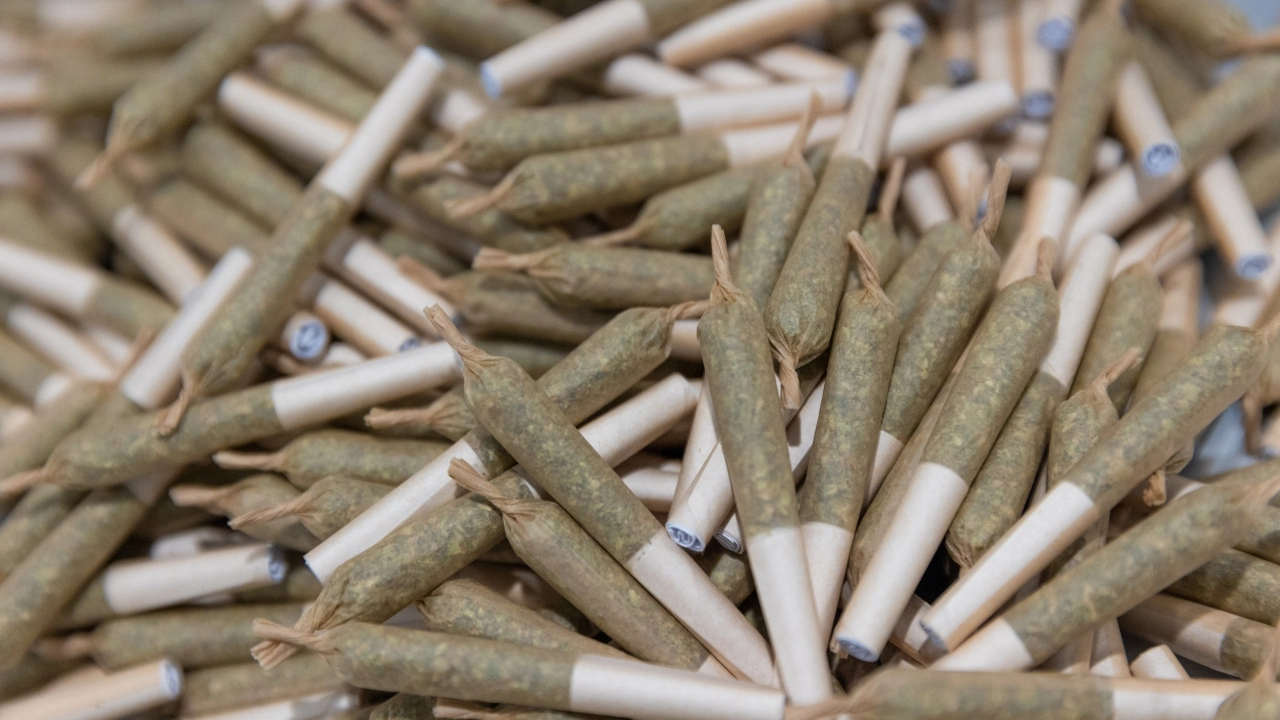The Trump administration’s recently imposed 50% tariff on imports from India is threatening the cannabis industry’s fastest-growing sector.
India is the world’s largest supplier of pre-rolled cones, a key part of a product category that recorded $2.3 billion in sales last year, according to data analytics firm Headset.
India accounts for about half of the global pre-roll cone supply, with Indonesia making up the other half, said Harrison Bard, co-founder of Custom Cones USA, which found in a study published last year the pre-roll sales grew nearly 12% from 2023 to 2024.
For retailers selling pre-rolls for as little as $1, even a small increase in production costs could squeeze already tight margins.
Operators now face tough decisions: absorb the added costs, pass them on to consumers or switch suppliers.
Trump India tariffs squeezing tight cannabis industry margins
Some pre-rolls are made from cones sourced from India and Indonesia, while others are machine-rolled joints.
The pre-roll supply chain is highly concentrated with few viable alternatives outside of India, Indonesia and China.
“With a 50% tariff, it becomes prohibitively expensive to source from India,” Bard said. “Some companies are already saying they can’t do it.”
Custom Cones USA is evaluating options for using automatic cone rolling machines at U.S.-based production sites rather than having its cones hand-rolled in India.
The cost of goods sold (COGS) for cones varies by paper, filter, print and other factors.
But it can be range from 3 cents to 8 cents per cone, said Hirsh Jain, co-founder of Los Angeles-based consultancy Ananda Strategy.
For a five-pack, a 50% tariff on declared value from India would add 8 cents to 20 cents in COGs.
Because brand and retail markups are typically two to three times, retail prices could increase 20 cents to 60 cents per multipack.
“In many U.S. markets, this will likely create meaningful price increases for pre-rolls,” Jain said.
While Indonesia remains an option, Bard notes that China’s quality is often inferior, and its products are also subject to tariffs.
“There really aren’t other places that make cones at scale,” Bard said.
Switching suppliers or materials could also disrupt branding. Many cannabis companies rely on custom-branded cones to differentiate their products.
“If your pre-rolls are always in white paper, you don’t want to switch – it’s part of your branding,” Bard said.
As a result, some may opt for stock cones from established names like Zig-Zag or Raw, sacrificing custom logos to cut costs.
Rethinking the supply chain
Pre-roll machine manufacturer RollPros sources the tips its customers use in their pre-rolls from India.
The increased costs resulting from the tariffs will be passed along to its customers, said Kyle Loucks, CEO of the Vancouver, Washington-based company.
But even more troubling than the increased costs is that shipments are being blocked at the border.
In one instance, a RollPros shipment included tips that had THC stamped on, which resulted in the seizure of all products in the order – including those without the stamp.
“We have tight timelines for all of our customers, and this makes it more expensive and time-consuming,” Loucks said.
As a result, Loucks said he’s looking at options in the United States to produce tips.
“My engineering team is looking at what we can do to make these here – it’s just better for the economy,” he said.
Resilient demand but uncertain future
Jain said the impact of the tariff will vary by market.
“Operators will have to decide state by state whether to pass on the cost increase, accept margin compression or invest in alternative suppliers,” Jain said.
States with higher pricing may be better positioned to absorb the added costs, while more price-sensitive markets could see significant disruptions.
“Operators with India-heavy sourcing will have to decide whether they will pass through the price to the consumers, accept some amount or margin compression or re-source to other countries such as Indonesia, Malaysia or China,” Jain said.
But he cautions against rushing to new suppliers in countries like Malaysia or Indonesia, given the unpredictability of U.S. trade policy.
“The tariff landscape is tumultuous,” he said.
“The president could change his mind, and operators need to be cautious about making drastic changes.
Subscribe to the MJBiz Factbook
Exclusive industry data and analysis to help you make informed business decisions and avoid costly missteps. All the facts, none of the hype.
What you will get:
- Monthly and quarterly updates, with new data & insights
- Financial forecasts + capital investment trends
- State-by-state guide to regulations, taxes & market opportunities
- Annual survey of cannabis businesses
- Consumer insights
- And more!
Tariff evasion
Raw Rolling Papers founder Josh Kesselman said his company quit sourcing its cones from India long ago because of quality issues.
They are now made in an automatic robotic backrolled cone factor in Europe or hand rolled in Indonesia, both with high levels of quality controls.
“Both of those places face increased tariffs, between 15% and 19%, but not as extreme as the 50% tariff on India,” Kesselman said.
That said, Kesselman still has issues with cones rolled in India, with some cones produced in the country printed with a “Made in France” stamp.
“That’s not fair to us or the consumer, as they’re misled,” Kesselman said.
Kesselman said he’s also heard that some importers from India are claiming their products are made in Europe, which reduces their tariff to 15% unless they get caught.
Another scheme involves companies in India underreporting the actual cost of their products, Kesselman said.
“They might sell to their related company in America with a price on the invoice that is 90% less than the actual cost,” he said.
That way, they only pay a very small tariff.
And that highlights a bigger, structural problem.
“The trouble with high tariffs or taxes is that it encourages people in this kind of situation to bend or break rules.”
Margaret Jackson can be reached at margaret.jackson@mjbizdaily.com.
Medical Disclaimer:
The information provided in these blog posts is intended for general informational and educational purposes only. It is not a substitute for professional medical advice, diagnosis, or treatment. Always seek the advice of your physician or other qualified healthcare provider with any questions you may have regarding a medical condition. The use of any information provided in these blog posts is solely at your own risk. The authors and the website do not recommend or endorse any specific products, treatments, or procedures mentioned. Reliance on any information in these blog posts is solely at your own discretion.





